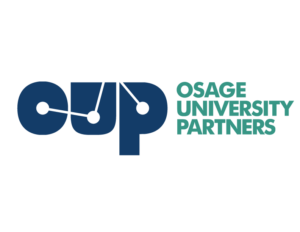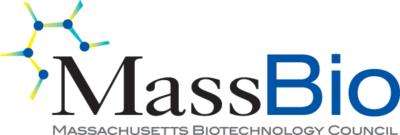Returning for the first time since 2019, Science2Startup (S2S) 2023 convened over 230 academic researchers, entrepreneurs, executives and venture capitalists. The symposium highlighted an impressive group of 10 scientists from some of the world’s top research institutions who are addressing the next generation of novel science.
Thank you to all of the attendees, presenters, sponsors, advisors, committee members and the biotech community.
S2S was created and presented by Boston-area venture capital firms Atlas Venture, F-Prime Capital, Osage University Partners (OUP), RA Capital Management, and 5AM Ventures in partnership with Massachusetts Biotechnology Council.
The day began with five closed-door workshops hosted by our sponsors, Deloitte, Evotec, Goodwin, JLL, USQ, and Silicon Valley Bank. Each session provided valuable insight into the different elements to consider when forming a new company.
The symposium officially kicked off with the keynote speaker, Sangeeta Bhatia from the Massachusetts Institute of Technology. She shared her journey as an entrepreneur, insight into the interface between engineering and medicine, and opportunities for medical innovation in today’s #biotech environment.
A panel discussion moderated by Marian Nakada, Ph.D. brought together three of our S2S alumni presenters (Kambez Benam, D.Phil. (Oxon), Mukesh Nyati, and Derrick Gibbings) who touched upon their company formation journey, experience connecting outside of their local ecosystem, and the best advice they received & would share to VCs when partnering with entrepreneurs.
Throughout the day, each of the presenting teams showcased their discoveries as well as their projected development path toward clinical proof-of-concept. They were selected from over 125 submissions from 61 institutions across eight continents.
1. Sarki Abdulkadir, M.D., Ph.D., Co-Founder of Vortex Therapeutics, Professor of Urology and Pathology, Northwestern University. Small molecule MYC inhibitors leveraging unique insights into MYC structure and function.
2. Thomas H. Barker, Ph.D., Co-Founder and CSO, Vasarya Therapeutics; Professor, University of Virginia. Developing targeted treatments for fibrotic disorders.
3. Jonathan Bernardini, Ph.D., Postdoctoral Researcher, Walter and Eliza Hall Institute of Medical Research, Melbourne, Australia. BioTACs as a next generation cell surface degrader approach.
4. Jacqueline Burke, Ph.D., Senior Scientist, DuPage Medical Technology, Inc.; Research Assistant Professor, University of Illinois Chicago. Novel peptide that selectively inhibits platelet and leukocyte activation and high-loading peptide nanoparticles enabling in vivo delivery for the treatment of thrombo-inflammation and ischemia-reperfusion injury.
5. Ken Fujise, M.D., Professor and the Harold T. Dodge-John L. Locke Chair in Cardiovascular Medicine, University of Washington. Fortilin, a macrophage (MФ) survival molecule, as a new and viable molecular target of atherosclerosis.
6. Paraskevi (Evi) Giannakakou, Ph.D., Professor of Pharmacology in Medicine and Associate Director of Education at the Sandra and Edward Meyer Cancer Center, Weill Cornell Medicine. First-in-class small molecule inhibitor of androgen receptor splice variant 7, for the treatment of drug-resistant prostate cancer.
7. Peng Ji, M.D., Ph.D., Professor of Pathology, Northwestern University. Novel small molecule compounds targeting Pleckstrin-2, a newly discovered protein critical for the pathogenesis of myeloproliferative neoplasms.
8. Kirill Martemyanov, Ph.D., Co-founder, EvoDenovo; Professor and Chair, The Herbert Wertheim UF Scripps Institute for Biomedical Innovation & Technology. New strategies for improving safety of opioid drugs and combating opioid use disorder based on innovative discovery of novel drug targets.
9. James H. Morrissey, Ph.D., Professor, University of Michigan Medical School. Novel platform for the reversal of all types of heparin in current clinical use.
10. James Shayman, M.D., Professor of Internal Medicine and Pharmacology, University of Michigan Medical School. Next generation inhibitors of glucosylceramide synthase for the treatment of neuronopathic and non-neuronopathic glycosphingolipid storage disorders.
S2S 2023 equipped participants with both an educational opportunity and a forum to connect with all members of the biotech, pharma, and life sciences community.
Now begins the preparation for 2024. The date and location are being confirmed, but we look forward to seeing you again next year.
Applications for S2S 2024 participation opportunities will open later this year. Stay tuned for more event updates and 2024 registration information throughout the year.
On behalf of all of us at S2S, thanks for joining us for another groundbreaking event. We can’t wait to see you next year!







